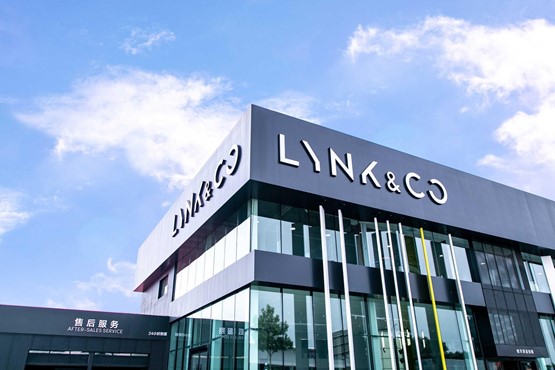Could a shortage of cash and heightened consumer caution in the wake of the COVID-19 coronavirus crisis help to fuel a shift towards car subscription?
Aaron Shields, executive strategy director at FITCH, the consultancy behind the physical design of subscription-based car brand Lynk & Co's retail concept, thinks it could...
The COVID-19 crisis has kickstarted new ways of thinking and behaving among many of us. While it’s tempting to imagine we can return to ‘normal’, the reality is, that world is gone. In its place will be something new, with huge opportunity for the businesses able to understand what a new normal might look like and how they can respond to it.
For automotive brands, the crisis has compounded existing concerns around consumers’ transition to alternative mobility solutions like carpooling, sharing and public transport.
While in many ways the lockdown has helped to make an argument for access to a car - with public transport passenger numbers down by 85% in London alone - customers are increasingly looking for convenient and financially cautious ways to get around.
Since the lockdown, 40% of shoppers are being very cautious with their spending, only focusing on the essentials. Car ownership outright may, therefore, seem a more intimidating option.
Customers are also worried about sustainability. In fact, 48% of Britons think that the government should respond to the threat of climate change with the same level or urgency as to COVID-19.
All these factors lead to me to predict that by 2045, car ownership will be as rare as horse ownership. The roadmap for automotive brands, therefore, requires change now.
The solution to meeting current customer desires lies in offering a better experience.
Rather than ownership, people will want to have access to cars, through more flexible options such as subscription-style services whereby consumers pick up a car when they need it, and don’t have to worry about it when they don’t. And preferably through relatively guilt-free options, in the form of electric vehicles (EVs).
To adapt to these new expectations, automotive brands will need to invest in four directions.
Ecommerce
The convenience-focused end of the mobility spectrum will be fought over first by a mix of conventional OEMs and technology newcomers flush with cash and political sway.
Mobility solutions will get easier and cheaper for the customer, enabled by an online model that takes away the pain points of car shopping. The new model will need to do the heavy lifting and support shoppers across all stages of the journey.
A network of supporting industries, like service providers for charging, cleaning and maintaining vehicles will emerge - and those that can consolidate these into the most convenient and delightful ecosystem will be ahead of the game.
Digital access to human help
The pivot to putting customer service at the heart of the automotive industry is already underway. At FITCH, we use a framework called PHD (Physical, Human, Digital) emphasising the need to integrate human experiences with digital ones for an all-around enhanced customer journey.
As we consider a transition to a subscription-led model, the customer naturally has more frequent brand interactions, as customers drop cars back or pick out a new one.
Automotive brands will need to ensure they are providing round the clock service through digital channels, alongside offering face-to-face help in key store locations, to answer any customer queries - whether a practical issue with a vehicle, or advice on how to reduce the environmental impact of using a car through efficient driving habits.
Invest in tier one locations
At the moment, automotive brands should be re-considering relationships with dealerships and working to create a better brand experience for customers when they do return post COVID-19.
 The focus should be on high-footfall, popular locations - which should be treated as Beta stores for wider reopenings. Brands like Lynk & Co are already kickstarting the move away from dealerships to online spaces supported by brand stores in busy areas.
The focus should be on high-footfall, popular locations - which should be treated as Beta stores for wider reopenings. Brands like Lynk & Co are already kickstarting the move away from dealerships to online spaces supported by brand stores in busy areas.
Engaging cautious consumers
There will be many shoppers looking to spend less money across all categories as we emerge from COVID-19.
It is crucial these shoppers continue to see mobility as essential and affordable. In transitioning to sustainable alternatives, like EVs, automotive brands will be able to make a better case for car ownership or subscription, with electric charging likely to become increasingly affordable.
The market for EVs is set to expand exponentially - thanks to governments incentivising EV purchases and growing consumer interest.
In Europe, research finds that combustion-engined vehicle sales will fall 21% in 2020, while EV sales will only drop by 16%. While currently representing 3% of global sales, analysts predict they will make up 7% by 2023 - the change is already underway.
We may soon reach a point where EVs are truly the best and main option.
The success of any brand in engaging with the most cautious shoppers goes back to the earlier point around creating an entire ecosystem of mobility: the brands able to provide subscription cars, related services and to make the case that their offering is environmentally sustainable as well as affordable will be the winners in the new economy.
COVID 19 has been the great accelerator towards automotive transformation.
This means it is now time for automotive brands to prepare for 2045.
The fuse has just been cut a little bit more, so smart auto brands will work to prioritise change.















Login to comment
Comments
No comments have been made yet.